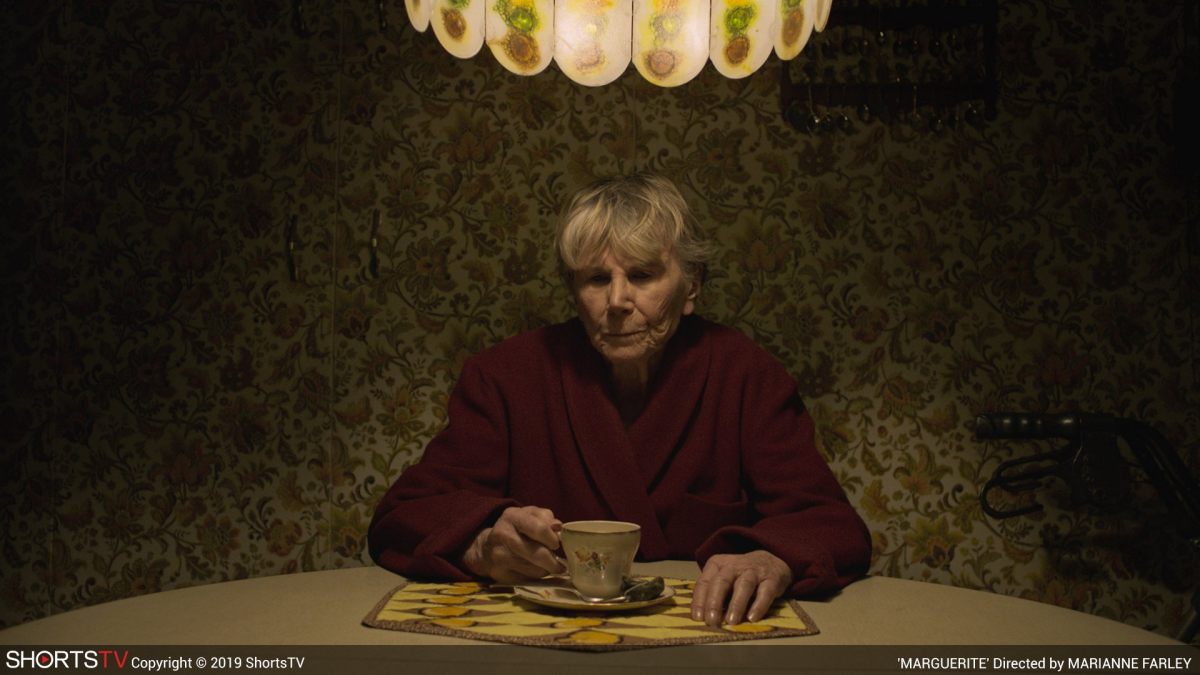The Short Of It: The 2019 Oscar-Nominated Live Action Short Films
In any given year, the short film categories really are the black sheep of the Oscar nominees. Even if you are a diehard like me, it’s usually pretty hard to see these shorts before the nominations are announced and even harder to predict what they’re going to be, so the nominations come out, you hear a bunch of names you don’t recognize, and you make a note to see the compilation exhibitions at your local arthouse theater before the Oscars ceremony in a few weeks. But these films are important because they represent the evolving efforts of their respective mediums, as new styles of animation tell more innovative stories, documentarians do important investigative journalism, and new and interesting voices receive the platform to spin engaging narratives.
This year, we at BMD have decided to highlight the Live Action category, to give you an idea of what you will find should you endeavor to find these screening somewhere near you. But fair warning: there will be spoilers, as these films are mostly conceptual and don’t really have enough overarching narrative to effectively talk about without their climaxes. Also, the nominees this year are bleak. Like, exceptionally bleak. With a running theme of endangered children. So you’ve been warned.

Fauve
Fauve, oddly enough, feels really slight when compared to the other nominees, though this might be because it explores themes so substantially similar to its competitors that it doesn’t do a lot to stand out. The film follows two pre-teen boys as they roughhouse about without any sort of adult supervision, daring one another into stupid stunts and laughing as one another is mildly injured. The pair end up in a quarry, and one of the boys gets stuck in quicksand. His friend rescues him, but then the original sinker throws his rescuer into the quicksand for a laugh. Only this time, the boy sinking is too far out of reach to be rescued, and the one who threw him has no choice but to run away as his friend sinks to his death. The film then becomes a quiet mediation on the survivor’s guilt before cutting away. It’s a depressing take on childhood innocence and how hurting one another in jest ultimately leads to someone getting truly hurt, but it also wears that message right on its sleeve and doesn’t do much more with it.

Madre
Madre, on the other hand, feels less concerned with the story it’s telling than the mechanisms by which it tells that story, which feels appropriate given that we are never shown the endangered child in person. Set in a single apartment, a woman (Marta Nieto) receives a call from her six-year-old son who is lost on a beach, separated from his father and completely alone. We watch this woman cope with the panic of her lost child while being entirely powerless to do anything about it, the child too far away to rescue as night and its implicit danger approach. The reason Madre is an impressive film is that it is mostly performed in one take, with Nieto absolutely killing it as a mother gradually working herself into a frenzy over her inability to do anything to save her child, their only lifeline a cell phone with a very low battery. Writer-director Rodrigo Sorogoyen demonstrates himself as a talent worth watching with this one.

Detainment
Detainment could almost be considered a documentary with its premise of recreating real events and interviews based on the recordings of those interviews. This is the story of how, in 1993, two ten-year-old boys took a two-year-old they had found wandering on his own to a secluded area and proceeded to beat him to death, making these children the youngest convicted murderers in English history. The film unravels events through the police interviews with the two kids, presenting a prisoner’s dilemma as they each grapple with their own guilt and meter out details of the abduction in greater and more haunting detail. One of the boys is distrustful and antagonistic, while the other is clearly wracked with guilt and is in denial about the extent of his involvement, but the film never shies away from the fact that both kids are guilty, even as they refuse to complete the narrative they started to reveal. Detainment is less interested in resolution than it is in the dramatization, and writer-director Vincent Lambe pulls some amazing performances from child actors Ely Solan and Leon Hughes.

Skin
Skin is the story of Troy, the eight-year-old son of a couple of Neo-Nazis, whose father in particular demonstrates his bona fides by near-fatally beating a black man for the sin of smiling at Troy. Troy, in contrast to his father, is shown to be a kind kid who feels his parents’ love, too naïve to the idea of hatred to fully grasp the violence his father teaches him. And here’s where things get … let’s say uncomfortable. Troy’s father is kidnapped by a group of black men, all of whom are nameless and don’t have much characterization beyond being scary and large, and is held drugged up in a garage as a tattoo artist works on his skin. Days later he is thrown from a van into the street outside his home, completely naked and, shockingly, with his skin completely inky black. Troy, not recognizing his father, shoots him dead. Though I’m sympathetic to the message Skin is trying to impart about the generational cycle of hate and the karmic tragedy of a son killing his father over perceived race, the film feels a bit too mean-spirited and devoid of nuanced understanding of race to be much more than a curiosity, even if it’s a bold curiosity at that.

Marguerite
Wait. What’s this? One of these films doesn’t deal with childhood trauma and tragedy? Yes, Marguerite, incidentally my favorite of the bunch, is the story of an elderly woman (Béatrice Picard) as she spends her last days alone in her home, with only the visits of her nurse Rachel (Sandrine Bisson) to keep her company. Marguerite’s loneliness is palpable, but it only becomes more so upon the realization that Rachel has a girlfriend, triggering memories of a woman Marguerite once loved but was never able to pursue. What follows is a bittersweet understanding between the two women of Marguerite’s secret sexuality and a balm against the isolation that had characterized Marguerite’s life, even if only temporarily. It’s a simple, touching story, but it’s one that stands out, not just for being thematically distinct from four stories of young boys coming to harm, but for being hopeful and thought-provoking rather than instinctually shocking.
Do you have favorite nominated short films from years past that you think deserve to be revisited? Share them in the comments, but please, maybe mention a few that leave the kids out of it.



